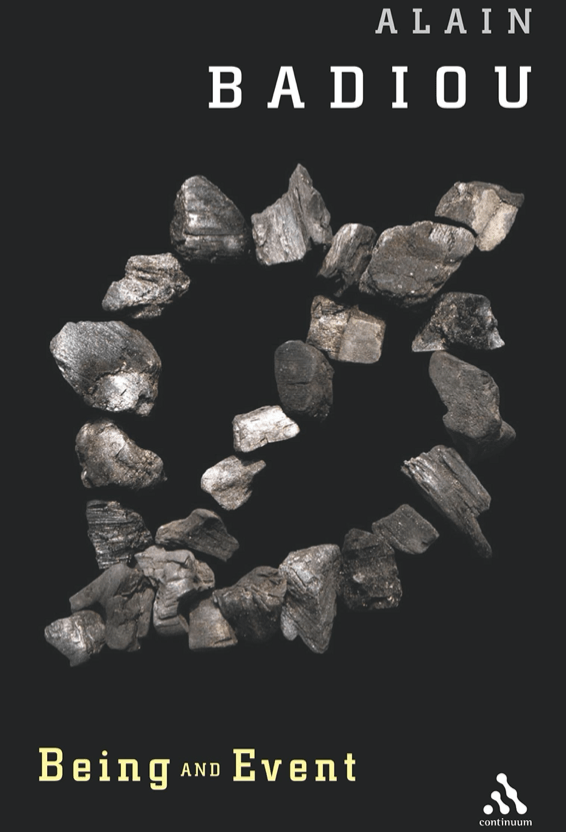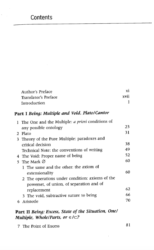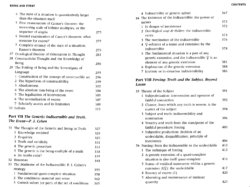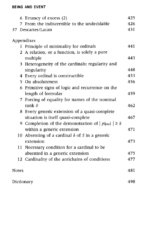According to Alain Badiou his book Being and Event did not lend itself to immediate comprehension. It was at the end of the eighties, in full intellectual regression. What was fashionable was moral philosophy disguised as political philosophy. Anywhere you turned someone was defending human rights, the respect for the other, and the return to Kant. Indignant protests were made about ‘totalitarianism’ and a united front was assembled against radical Evil. A kind of flabby reactionary philosophy insinuated itself everywhere.
The situation was actually quite paradoxical, “democracy” and “freedom” were reduced to the freedom to trade and consume. Declarations were made to the effect that all cultures were of the same value, that all communities generated values, that every production of the imaginary was art, that all sexual practices were forms of love, etc. In short, the context combined of violence dogmatism of mercantile ‘democracy’ with thoroughgoing scepticism which reduced the effects of truth to particular anthropological operations. Consequently, philosophy was reduced to being either a laborious justification of the universal character of democratic values, or a linguistic sophistry legitimating the right to cultural difference against any universalist pretension on the part of truth.
Badiou makes four affirmations that go entirely against the flow of this ordinary philosophy:
1. Situations are nothing more, in their being, than pure indifferent multiplicities. Consequently, it is pointless to search amongst differences for anything that might play a normative role. If truths exist, they are certainly indifferent to differences. Cultural relativism cannot go beyond the trivial statement that different situations exist.
2. The structure of situations does not, in itself, deliver any truths. By consequence, nothing normative can be drawn from the simple realist examination of the becoming of things. A truth is solely constituted by rupturing with the order which supports it, never as an effect of that order. I have named this type of rupture which opens up truths ‘the event.’ Authentic philosophy begins, not in structural facts (cultural, linguistic, constitutional, etc.), but uniquely in what takes place and what remains in the form of a strictly incalculable emergence.
3. A subject is nothing other than an active fidelity to the event of truth. This means that a subject is a militant of truth. The militant of a truth is not only the political militant working for the emancipation of humanity in its entirety. He or she is also the artist-creator, the scientist who opens up a new theoretical field, or the lover whose world is enchanted.
4. The being of a truth, proving itself an exception to any pre-constituted predicate of the situation in which that truth is deployed, is to be called ‘generic.’ In other words, although it is situated in a world, a truth does not retain anything expressible from that situation. A truth concerns everyone inasmuch as it is a multiplicity that no particular predicate can circumscribe.
Badiou premise the analysis of the current global state of philosophy on three main groups:
1. Heidegger is the last universally recognizable philosopher.
2. Mathematics that in logic and in the work of Vienna circle has succeeded in conserving the figure of scientific rationality as a paradigm for thought.
3. A post-Cartesian doctrine of the subject including works by Marx and Lenin, and Freud and Lacan.
What do these three statements have in common? They all indicate, in their own manner, the closure of an entire epoch of thought and its concerns. Thus, according to Badiou, there is a general agreement that speculative systems are inconceivable and that the epoch has passed in which a doctrine of the knot being/non-being/thought (if one allows this knot as the origin of philosophy) can be proposed in the form of a complete discourse. The time of thought is open to a different regime of understanding.
Badiou considers his intervention in this conjuncture consisting in drawing a diagonal through it and he attempts to pass his trajectory through three sutured points:
1. Along with Heidegger, philosophy can only be re-assigned on the basis of the ontological question.
2. Along with analytical philosophy, he believes that the mathematico-logical revolution of Frege-Cantor sets new orientations for thought.
3. Finally, he agrees that no conceptual apparatus is adequate unless it is homogeneous with the theoretico-practical orientations of the modern doctrine of the subject.
We live in a complex, indeed confused, epoch: the ruptures and communities from which it is woven cannot be captured under one term. There is not ‘a’ revolution today (nor ‘a’ return, nor ‘a’ critique). Badiou would summarize the disjointed temporal multiple in three classes:
1. We are the contemporaries of a third epoch of science. The caesura which opens this third epoch is not (as with the Greek) an invitation, nor is it (like Galilean) a break—it is a split, through which the very nature of the base of mathematical rationality reveals itself.
2. We are contemporaries of a second departure in the doctrine of the Subject. It is no longer the founding subject, centered and reflexive, whose theme runs from Descartes to Hegel and which remains legible in Marx and Freud (in fact, in Husserl and Sartre). The contemporary Subject is void, cleaved, a-substantial, and ir-reflexive.
3. We are contemporaries of a new departure in the doctrine of truth, following the dissolution of its relation of organic connection to knowledge.
The philosophy is not centered on ontology—which exists as a separate and exact discipline—rather, it circulates between this ontology (thus, mathematics), the modern theories of the subject and its own history. The contemporary complex of the conditions of philosophy includes everything referred to in my first three statements: the history of ‘Western’ thought, post-Cantorian mathematics, psychoanalysis, contemporary art and politics. Philosophy does not coincide with any of these conditions; nor does it map out the totality to which they belong. What philosophy must do is propose a conceptual framework in which the contemporary compossibilities of these conditions can be grasped.
According to Badiou, the thesis that he supports does not in any way declare that being is mathematical, which is to say composed of mathematical objectivities. It is not a thesis about the world but about discourse. Consequently, our goal is not an ontological presentation, a treatise on being, which is never anything other than a mathematical treatise. Our goal is to establish the meta-ontological thesis that mathematics is the history of the discourse on being qua being.
If the establishment of the thesis ‘mathematics is ontology’ is the basis of this book, it is in no way its goal. However radical this thesis might be, all it does is delimit the proper space of philosophy. The function of the book is to introduce specific themes of modern philosophy, particularly—because mathematics is the guardian of being qua being—the problem of ‘what-is-not-being-qua-being.’ Paying to this problem is organized around two affiliated and essentially new concept, those of truth and subject.
Although the link between truth and the subject appears ancient, or at least whose inaugural name is Descartes, Badiou attempts to reactivate these terms within an entirely different perspective. The book founds a doctrine which is effectively post-Cartesian, or even post-Lacanian, a doctrine of what both unbinds the Heideggerian connection between being and truth and institutes the subject, not as support or origin, but as fragment of the process of a truth. Generic is the one category that Badiou accepts as emblem of his thought. He borrowed this term from a mathematician, Paul Cohen. According to Badiou, this concept by Cohen constitutes an intellectual topos. The thought of the generic supposes the complete traversal of the categories of being and of the event. It crystallizes concepts to such a point that it is almost impossible to give an image of it. Instead, it can be said that it is bound to the profound problem of the indiscernible, the unnameable, and the absolutely indeterminate.
What happens in art, in science, in true (rare) politics, and in love (if it exists), is the coming to light of an indiscernible of the times, which, as such, is neither a known or recognized multiple, nor an ineffable singularity, but it is the truth of the collective’s being.
ـــــــــــ
Badiou, Alain. Being and Event. Translated by Oliver Feltham. New York: Continuum, 2005.
 platform
platform  Being and Event
Being and Event



